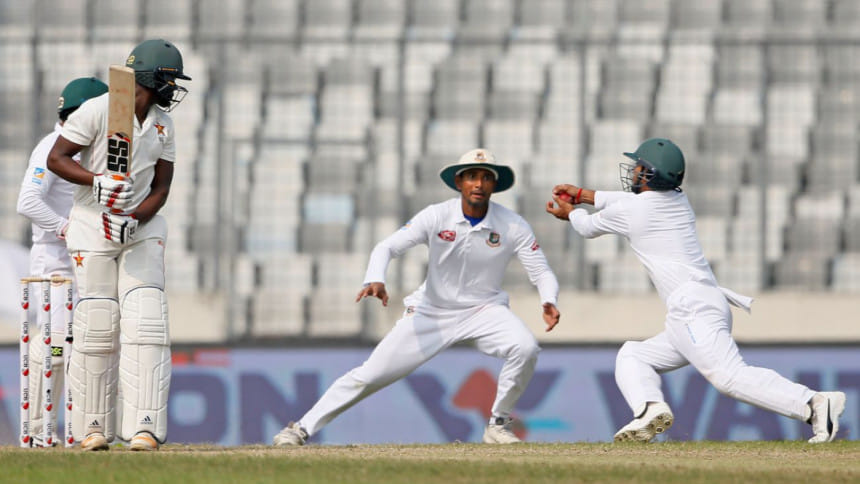From a 151-run loss to a 218-run win: joy or relief?

It was hoped that October 2016 would be a watershed moment in Bangladesh's Test career. They beat England in the second Test in Mirpur to share a two-Test series. It was the first time that they walked away with a share of a fully played out -- in other words not affected by rain interruptions -- series of more than one Test against an opponent other than Zimbabwe or West Indies.
Two years and 15 Tests -- of which six were at home -- later, a shared series is the best Bangladesh have been able to do. They won three of those 15 Tests, each scoring the point in drawn series against Sri Lanka in Sri Lanka and against Australia (August 2017) and Zimbabwe at home. That last result was achieved at the Sher-e-Bangla National Stadium in Mirpur yesterday through a 218-run win after they lost the first Test by 151 runs in Sylhet last week.
A drawn home series against a side who had not played a Test all year before the one in Sylhet and are still the lowest-ranked Test side drives home the point that while the Tigers have improved greatly in ODI cricket, their Test fortunes and ability remain more or less static -- a trend of home series shared 1-1 is a prime example of that.

"Everyone wanted Bangladesh to win against Zimbabwe," Bangladesh skipper Mahmudullah Riyad said in the post-match press conference. "I think you also have to give Zimbabwe credit because they played good cricket. We lacked discipline in the first Test, which is important in Test cricket."
He seemed to take a bit of offence when asked whether the feeling was of joy or relief after squaring a series with Zimbabwe.
"If you win a match, then of course you should feel happy. A win gives you the right to express joy. When we lose, we are the ones who feel more pain -- no one sees our tears and neither do we speak of our pain aloud."
That, however, may be at the centre of the problem. There have been instances of Bangladesh cricketers' emotions spilling over, with both negative and positive effects on results. The 2016 win against England came at the back of a heartbreaking loss in Chattogram, but that was a false dawn of playing well in two successive Tests.
Their home record since reads thus: a win in the first Test against Australia in Dhaka preceded a heavy loss in the second in Chattogram (August-September 2017) and a bat-dominated draw in Chattogram against Sri Lanka that was followed by a hammering in Dhaka (February 2018).
The recent trend in Test series at home seems to be that the team become complacent after a win or creditable draw, or are fired into action when they lose.
The consensus, not just in Bangladesh but around the world, seems to be that Bangladesh are now a force in home Tests. As far as the rest of the world goes, that may just be a reflection of the fact that Test teams can no longer come to Bangladesh and walk away with Test whitewashes, weather permitting. That much was established in 2016.
However, becoming a force in Tests -- whether home or abroad -- means series wins and that requires consistency not just over five days of a match but over the 10, 15, 20 or 25 days that constitute a series.
"If we play like we did in the first Test, then of course there is no meaning [in playing Tests]. But if we play like we did in this Test, then of course there is meaning," Mahmudullah said when reminded that he said, after the first Test, that it was meaningless to play Test cricket in the way that they did.
Joy after a Test win is of course warranted as are tears in the dressing room after humiliating losses. However, if they lost a home series which they started as clear favourites, that would have been a step back. Therefore, after drawing the series on the last day, relief is probably the feeling -- the relief of at least remaining static.

 For all latest news, follow The Daily Star's Google News channel.
For all latest news, follow The Daily Star's Google News channel. 



Comments